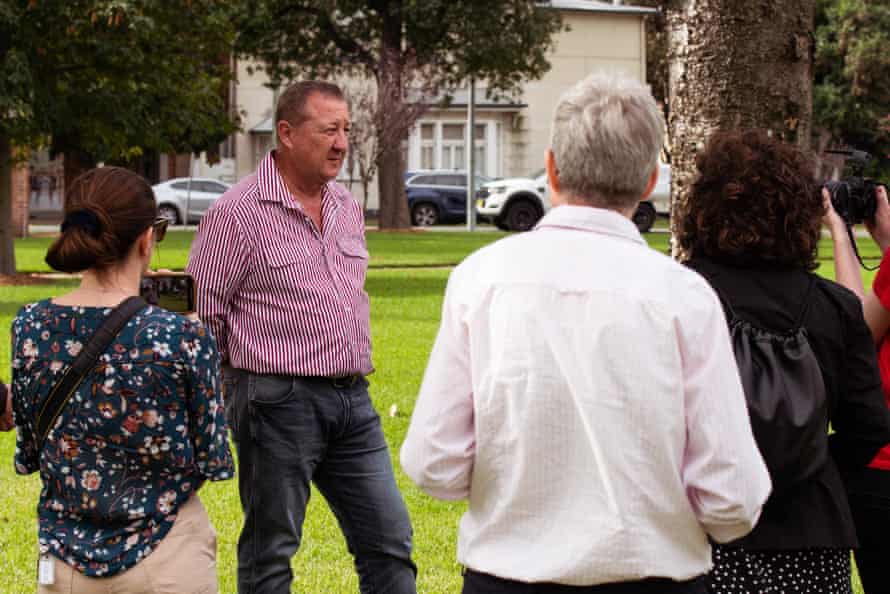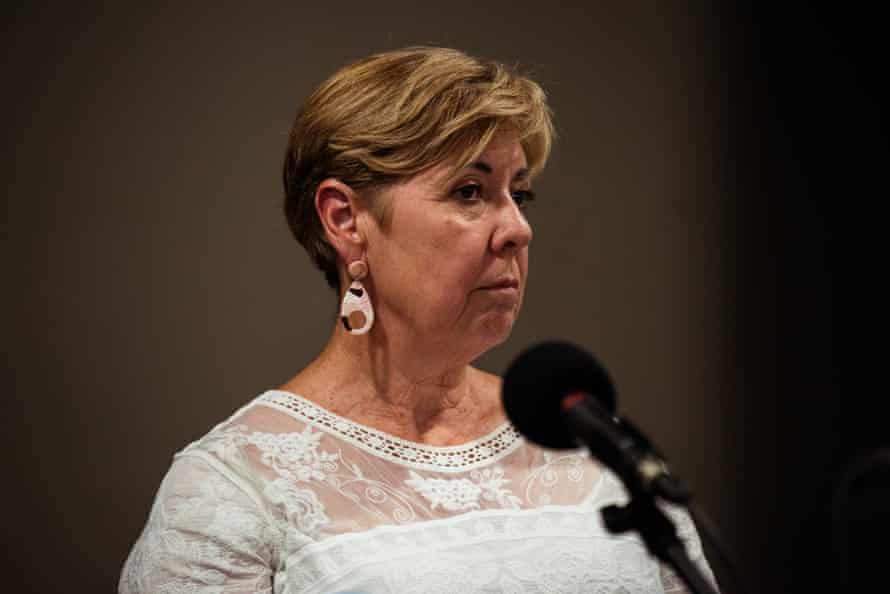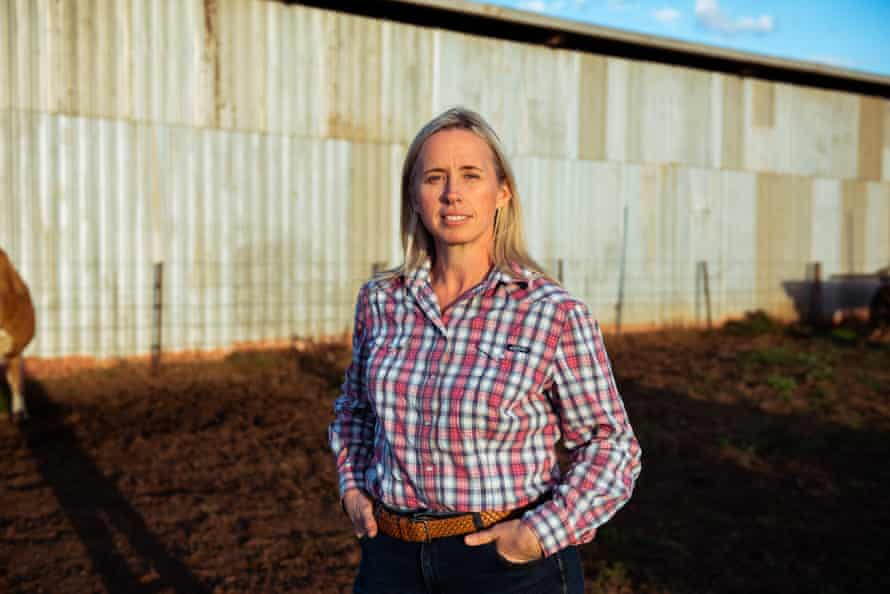Nationals’ leader John Barilaro believes his party will retain the crucial Upper Hunter electorate, as his party’s candidate spent the final day of the campaign telling voters the “most important topic” in Saturday’s byelection was maintaining coalmining in the region.
Despite the dozen challengers vying to win the seat from the party for the first time since the second world war launching a slew of attacks against the Nationals in the final days of the campaign, Barilaro remained confident the party would hold onto the seat.
The Nationals’ margin in Upper Hunter has fallen from 23% before the 2015 election to just 2.6%, but polling in the campaign’s final days has shown the party maintaining a slim lead. The Daily Telegraph ran a small YouGov poll of only 400 voters which found the party with a narrow 51-49% two-party preferred vote, while Barilaro has said internal polling also shows the party holding onto the seat.
“Well look, the context is we’re a third term government, byelections aren’t normally on our side,” he told Sky News this week.
“But we’re mongrel fighters in campaigns [and] I’m confident we’ll get there. I don’t agree with the YouGov poll, it’s very different to some of the data we’ve seen … I’m comfortable with our primary vote.”
Prompted by the resignation of former MP Michael Johnsen after he was accused of raping a sex worker – an allegation he strenuously denies – the byelection has been hotly contested.

Situated in New South Wales’ coalmining heartland, all four parties with a realistic shot of winning the seat pledged to support the industry, despite increasing land use conflicts with the agriculture sector, numerous issues around air quality from mining, and pressure on politicians to outline a future for the region beyond coal.
Labor preselected a former mining union official, Jeff Drayton, as its candidate. He spent the campaign calling for an increased share of coal royalties to remain in the Hunter, while pushing back on what he called the “demonisation” of mine workers.
When asked by the Guardian during the campaign, for example, whether it was good that the huge Mt Pleasant coalmine is situated less than three kilometres away from the Upper Hunter town of Muswellbrook, he said: “Absolutely.”
“That mine delivers enormous economic benefit back to that community … I don’t think a large part of the town would be there without coalmining,” he said.
While his full-throated support for coalmining has ruffled feathers internally – many in the party fear the coal-at-all-costs rhetoric will harm Labor in the inner-city seats where it is fighting off the Greens – the party’s leader, Jodi McKay, will almost certainly find herself under pressure if Drayton does not perform well.
McKay has struggled to gain any ground on the Coalition government throughout her leadership despite the government being beset by a string of scandals, and polling this week found Gladys Berejiklian was the preferred premier even among Labor voters in the state.

In a region where employment is highly dependent on coal, Drayton has not been alone. On Friday the Nationals candidate, Dave Layzell, said in an interview that mining jobs remained “the most important topic” in the byelection, while both One Nation and the Shooters, Fishers and Farmers Party – which have designs on winning the seat – have hyped their pro-coal credentials.
But the dynamics of the electorate are such that all parties have had to walk a careful line. While the towns of Muswellbrook and Singleton are dominated by employees of mining and associated industries, further up the valley, in places like Scone, concerns about land use conflicts with primary producers are felt more keenly. Indeed, at a candidates’ event in Scone a few weeks out from the election, Layzell was heckled during his answers both on protecting prime agricultural land and water use.
Once Nationals heartland, Scone has seen the party spend more time than usual defending its turf. Similarly though, while Labor could once count on the heavily unionised coal mining workforces in the larger towns, One Nation’s strong vote in the Hunter during the last federal election suggests voter dynamics in the region are shifting.
In any case, slim polling margins suggest the result will likely come down to how the preferences split – something that is notoriously difficult to gauge in NSW, where preferences are optional.
On that score, the Shooters party, which the YouGov poll had at 16% support, could prove critical. The party’s candidate, Singleton businesswoman Sue Gilroy, has spent the final days of the campaign squarely attacking the Nationals’ record.
On Thursday she visited a dairy farm in Gloucester where she attacked the party’s record on the industry, while on Friday she visited Muswellbrook greyhound race track, presumably as a reminder of the Nationals’ support for former NSW premier Mike Baird’s failed attempt to ban the industry in the state.

Another potential spanner in the vote equation is the independent candidate Kirsty O’Connell, a fifth-generation farmer from Aberdeen who is one of the few in the running to have questioned the region’s reliance on coalmining by calling for a moratorium on new projects. O’Connell became a target for the Nationals after she was endorsed by former prime minister Malcolm Turnbull.
In the final week of the campaign, that support ratcheted up another notch when it was revealed Turnbull had made a $3,000 donation to her campaign. Barilaro labelled the donation “treacherous” and called for Turnbull to be kicked out of the Liberal Party.
While she is unlikely to attract enough support to win the race, O’Connell’s popularity among agricultural industry voters clearly has the Nationals worried. The party – with support from elements of Sydney’s conservative media – have sought to label her as a “Labor-lite” candidate. O’Connell hit back during the week, releasing a statement in which she said she had discussed a preference swap with the Nationals but could not get the party to have “a sensible conversation”.
“I asked them to at least pause all new mining, gas and exploration while we make a sensible plan for our future. The Nats refused to help,” she said in a statement.
“The Nats told me they had no room to move on policy at all – yet last night they announced that they will form an expert panel to advise on transition. If they were so interested in my support, why wouldn’t they have a sensible conversation weeks ago?”